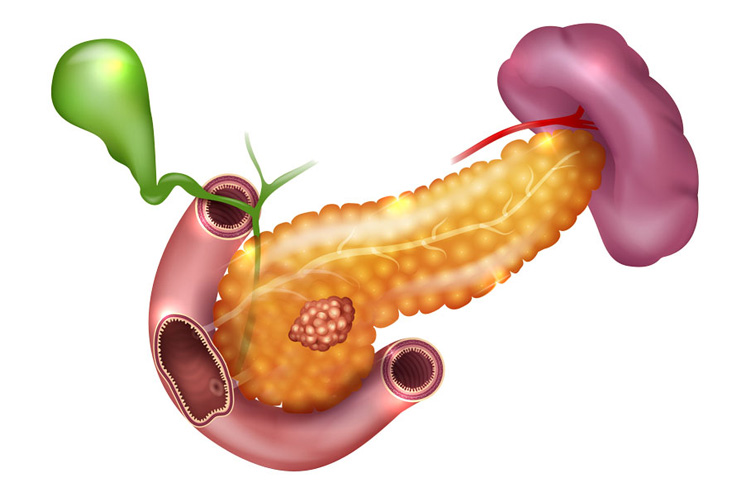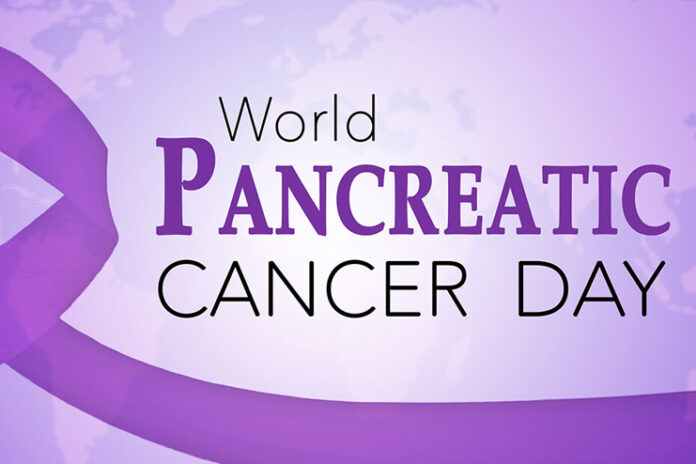Affiliate Disclaimer
Some links in this article are affiliate links. We may earn a small commission if you make a purchase through these links, at no extra cost to you. We only recommend products we find useful to our readersWorld Pancreatic Cancer Day, observed on November 21, raises awareness of one of the most challenging cancers. Every year, this day brings together patients, families, and medical professionals to raise awareness of pancreatic cancer and its effects on people’s lives all over the world.
In addition to paying tribute to those impacted by this terrible illness, this day supports vital research projects and inspires communities to join the battle against pancreatic cancer.
Because of its high mortality rates and frequently silent symptoms, increasing awareness of pancreatic cancer is essential for early detection and better treatment options. This article explores pancreatic cancer in-depth, from symptoms and risk factors to diagnosis, staging, awareness, support, and advocacy.
What is Pancreatic Cancer?

Deep within the abdomen, between the stomach and the spine, is a gland called the pancreas. It produces hormones that regulate the blood sugar levels and digestive enzymes.
When abnormal cells in the pancreas expand and divide uncontrollably, they create a tumor, which is the first sign of pancreatic cancer.
Pancreatic cancer can arise in any of the three primary sections of the pancreas: the head, body, and tail. Pancreatic ductal adenocarcinoma is one of the most prevalent kinds of pancreatic cancer. It starts in the cells lining the ducts that transport digestive enzymes from the pancreas.
Pancreatic cancer is rarely discovered in its earliest stages when there is the best chance of recovery. This is because symptoms often do not manifest until the disease has spread to other organs.
When developing your treatment plan, your medical team takes the severity of your pancreatic cancer into account. Doctors may use radiation therapy, chemotherapy, surgery, or a combination of these as treatment options.
Risk Factors and Causes

A complex interaction between environmental factors, lifestyle choices, and genetic factors influences the development of pancreatic cancer.
Family History: People with a family history of pancreatic or other cancers may be more vulnerable, emphasizing the significance of genetic screening and education.
Lifestyle Choices: One of the main risk factors for pancreatic cancer is smoking, which can raise your cancer risk by up to 50%. Additionally, obesity and a sedentary lifestyle can increase vulnerability, as can a diet heavy in red and processed meats.
Environmental Factors: Exposure to chemicals like benzene and asbestos, and pesticides can also raise the risk of pancreatic cancer.
Awareness of these factors is crucial for prevention, enabling people to make wise choices and change to healthier lifestyles that may lower their risk of developing this aggressive cancer.
Symptoms of Pancreatic Cancer
Pancreatic cancer is often difficult to detect early due to its subtle symptoms, which usually appear only after the disease has progressed. Early symptoms may include:
- Unexplained weight loss
- Loss of appetite
- Abdominal pain that often radiates to the back
- Jaundice (yellowing of the skin and eyes)
- Itchy skin
- Pale stools
- Dark urine
Diagnosing Pancreatic Cancer
Diagnosing pancreatic cancer typically requires several precise tests due to the difficulty in detecting early signs.
- Imaging procedures:
- CT (Computed Tomography) scan
- MRI (Magnetic Resonance Imaging) scan
- Ultrasound
- Tissue biopsy (TA biopsy) to verify the presence of cancer cells
- Staging to determine the cancer’s extent:
- Stage 0: Limited to the pancreas
- Stages 1-3: Cancer spreads within the pancreas or nearby organs
- Stage 4: Cancer has spread to distant organs
Support and Resources

Patients and their families may find navigating the path of pancreatic cancer to be extremely taxing, but resources and support are abundant and available to reduce the burden. Support groups are essential for building community because they provide a secure setting where people can exchange stories, learn from one another, and find solace in everyday hardships.
Groups like the Pancreatic Cancer Action Network (PanCAN) offer resources such as online forums, patient support groups, and individual counseling. From informational guides to local support groups, the American Cancer Society (ACS) also provides a range of programs aimed at helping patients and caregivers.
Raising Awareness

Established in 2014, iWorld Pancreatic Cancer Day unites advocates, survivors, and organizations to shine a light on the disease’s often overlooked status, fostering global dialogue and educational efforts to improve awareness and timely intervention.
Current statistics highlight the harsh reality of pancreatic cancer and underline the urgency of this awareness campaign. With 1,250 new cases diagnosed worldwide every day, pancreatic cancer is the fourth most deadly cancer in Europe and has the lowest survival rate of any primary cancer. In 2024, experts expect that more than 51,750 Americans will lose their lives to pancreatic cancer, and an estimated 66,440 Americans will receive a diagnosis.
Campaigns to raise awareness enable people to spot the warning signs, like inexplicable weight loss and stomach pain, and instill a sense of urgency about getting medical attention.
People can become involved by participating in activities like online advocacy campaigns, awareness walks, and fundraising events. Groups such as Stand Up to Cancer (SU2C) actively support innovative research and invite the public to support their initiatives. Everybody can help fight pancreatic cancer by volunteering, attending advocacy meetings, or funding research projects.
Conclusion
Understanding pancreatic cancer shows that increasing survival rates requires early identification. Awareness and prompt action are essential since this aggressive disease frequently goes undetected until it has progressed. People can seek medical assistance sooner if they recognize symptoms such as abdominal pain, jaundice, and unexplained weight loss.
Although the diagnosing process might be difficult, improvements in biopsy methods and imaging technology give promise for early detection. From more excellent research to helping patients and their families, the fight against pancreatic cancer necessitates a team effort that will eventually lead to better results and more potent treatments.
References
- https://pancreatic.org/event/world-pancreatic-cancer-day
- https://ecpc.org/get-involved/pancreatic-cancer-world-pancreatic-cancer-day-campaign
- https://www.worldpancreaticcancercoalition.org
- https://www.awarenessdays.com/awareness-days-calendar/world-pancreatic-cancer-day-2024
- https://www.mayoclinic.org/diseases-conditions/pancreatic-cancer/symptoms-causes/syc-20355421
- https://pancan.org/facing-pancreatic-cancer/about-pancreatic-cancer/what-is-pancreatic-cancer
- https://my.clevelandclinic.org/health/diseases/15806-pancreatic-cancer
- https://www.cancer.org/cancer/types/pancreatic-cancer/about/what-is-pancreatic-cancer.html
- https://www.mdanderson.org/cancer-types/pancreatic-cancer.html
- https://www.cancer.org/cancer/types/pancreatic-cancer/causes-risks-prevention/risk-factors.html
- https://www.hopkinsmedicine.org/health/conditions-and-diseases/pancreatic-cancer/pancreatic-cancer-risk-factors
- https://www.mayoclinic.org/diseases-conditions/pancreatic-cancer/symptoms-causes/syc-20355421
- https://pancan.org/facing-pancreatic-cancer/about-pancreatic-cancer/risk-factors
- https://www.cancer.org/cancer/types/pancreatic-cancer/detection-diagnosis-staging/signs-and-symptoms.html
- https://my.clevelandclinic.org/health/diseases/15806-pancreatic-cancer
- https://www.hopkinsmedicine.org/health/conditions-and-diseases/pancreatic-cancer/pancreatic-cancer-symptoms
- https://www.mayoclinic.org/diseases-conditions/pancreatic-cancer/diagnosis-treatment/drc-20355427
- https://www.cancer.org/cancer/types/pancreatic-cancer/detection-diagnosis-staging/how-diagnosed.html
- https://www.nationaldaycalendar.com/international/world-pancreatic-cancer-day-third-thursday-in-november
- https://www.cancer.org/cancer/types/pancreatic-cancer/about/key-statistics.html
- https://pancreatic.org/pancreatic-cancer/pancreatic-cancer-facts
- https://standuptocancer.org
- https://www.cancer.org
- https://pancan.org
In this Article


















